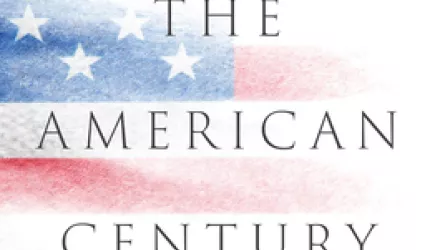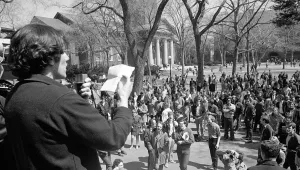The United States and NATO are about to lose the war in Afghanistan to an insurgent, revived Taliban. Deprived of sufficient firepower and soldiers, Allied forces are failing to hunt down and contain the Taliban, especially in the southern part of the country. Moreover, the crucial battle for Pashtun hearts and minds is also about to be lost. Only the rapid provision of security, roads, electricity, and educational and health services can counter the appeal of the renewed and reinvigorated Taliban. Urgently required are more troops for security and more funds for rebuilding essential services.
Narco-trafficking is fueling the Taliban, and fat profits from poppies and opium are partially responsible for the militants' resurgence . Indeed, Afghanistan is supplying about 90 percent of the world's opium and nearly all of the heroin that ends up in Europe. A recent study by the UN Office for Drugs and Crime forecasts a record crop of poppies this year, on top of last year's bumper harvest.
To undercut the ability of the Taliban to purchase arms, pay soldiers, and buy the support of villagers, the United States and NATO need to break the back of the drug trade in and out of Afghanistan. However, reliance on eradication -- the current weapon of choice -- is foolish and wasteful. Uprooting crops and spraying have both had limited local effect. What is needed is a radically new, incentive-based method to provide better incomes to farmers from substitute crops.
Many Afghan officials have urged farmers to grow saffron or almonds instead of poppies. But the only viable substitute crop is wheat, an Afghan staple. Sometimes it is in short supply, too. If the West would guarantee above-market prices for wheat over 10 years, and establish a transparent method to buy unlimited quantities of wheat from Afghan farmers through an official marketing system, it is likely that Afghan farmers would gradually switch from poppies to wheat. And they could eat any wheat that becomes surplus. Furthermore, guaranteeing a high price for wheat would probably cost less than the billions devoted to eradication. It would also put more money than from poppies directly into the pockets of farmers and, simultaneously, cut out middlemen and traffickers.
Inventing such a scheme is the only way to undercut the appeal of the Taliban. Extirpating its troops by conventional military means will remain impossible without curtailing the flow of men and materiel from Taliban support bases in Pakistan. It is not yet clear that the Pakistani intelligence services are ready to cripple the Taliban in that way. NATO has too few troops and too little good intelligence to do so itself without Pakistan's help or without limitations on the Taliban's supply of cash through narcotics.
In many civil wars, winning the trust and cooperation of the beleaguered civil population is essential. In Afghanistan the American-backed government of President Hamid Karzai has much too little progress to report. Seventy percent of all Afghan businesses still run generators so they can operate for a few hours a day. There is little centrally generated electricity, potable water is scarce, the road network is still potholed and poor, jobs are scarce, educational opportunity remains limited, and health facilities are spartan. Most of all, the countryside and the cities are increasingly insecure.
It is true that credible elections have been held and that parliament, representing the entire country, has often curtailed the power of the executive. It is true that parts of Kabul are booming, thanks to international activity. It is also true that sections of northern Afghanistan are peaceful, and responding well to the earnest efforts of NATO missions.
But the more populous, Pashtun-dominated south is more and more at war. That is the consuming challenge for NATO and American forces. Those forces need to show that they can stifle the narcotics trade, prevent Talibani movement across the Pakistani border, and oust the Taliban from strongholds in southern provinces. Most of all, they must begin to win the trust and cooperation of citizens through lasting good works and by showing that NATO forces are in the south to stay. No Afghan believes that they are.
Winning in Afghanistan is a tall order. It will rely on major Afghan government and donor support, a concerted battle over drugs, and a clear demonstration to Afghan villagers that NATO will win. Otherwise, the Taliban will play upon people's fears and gain strength in a clash of wills with a weakened NATO.
Rotberg, Robert. “Losing the War in Afghanistan.” The Boston Globe, April 2, 2007





